Can Serbia take advantage of the new Cold War?
Monday, 08.09.2008.
00:53

Can Serbia take advantage of the new Cold War? While the underground military facilities scattered around the country seem sort of quaint in our era, at that time the willingness of the Yugoslav Army to conduct prolonged and intensive guerrilla warfare against any invader was a significant deterrent. Tito had another advantage. Overlooking some ethnic stirrings such as the Croatian Spring, he had full control of his country with one-party authoritarian rule. He did not have to worry about upcoming elections. Moreover, his credibility from the World War II years and his willingness to stand up to Stalin gave him a status in the world that was unique. He cleverly used the Non-Aligned Movement, which he helped to create, as a lever against the two blocks. Domestically, he mixed his unique brand of authoritarianism flavored with anti-capitalism and against significant private ownership with personal freedoms, which were the envy of the Communist block. In sum, he made Yugoslavia a beneficiary of the Cold War. Serbia is now finding itself once again between forces veering towards a new "Cold War" with a resurgent, aggressive Russia openly talking of its right to a "Sphere of Influence" which even goes beyond bordering countries (clearly having Serbia and probably Montenegro in mind) and the West, led by the United States pushing back with rhetoric and resources. This, at least in theory, could prove beneficial to Serbia just as it was to the former Yugoslavia under Tito. After all, the European Union offered significant concessions to Serbia prior to the recent elections in order to stave off a threat from the Radicals. Russia gave and continues to give its vital support in the UN Security Council to Serbia over Kosovo and has billions to invest thanks to souring oil and gas revenues. Certainly some clever Serbian politicians are thinking about recreating the grand old Tito days and playing one side off against another to obtain continued concessions from both… The only problem is that this comparison with the Tito era is only superficial. It falls apart upon closer inspection. What looks attractive potentially in the very short term becomes unworkable shortly down the road. The major difference is that Tito conducted his foreign policy from a position of strength while Serbia today does so from one of weakness. Its current foreign policy is totally a product of fierce internal divisions and therefore lacks coherence and continuity. The case of Georgia has brought these conflicts very much out into the open. On the one hand, driven by hatred of NATO and developments in Kosovo, the Radical Party and the DSS of Vojislav Kostunica have seemingly taken great satisfaction in the Russian invasion of Georgia and recognition of its two breakaway regions. Rather than condemning Russia for these actions (however similar they are to what happened with Kosovo), they attach all the blame on NATO and the United States for launching the precedent in Kosovo. They are calling for the closest possible ties to Russia and probably are also happy that Russia wants to include Serbia in its "Sphere of Influence." On the other hand, those wanting to join the European Union as soon as possible are just as concerned about the Russian actions as the EU itself is. They certainly do not welcome the Russian embrace. Because of the critical Russian support on the Kosovo question, however, the government and the President hesitate to express this view. They are staying silent. The best illustration of the difference between the two eras is the current deal on the table for Russian purchase of the Serbian oil company NIS. In the Tito era, Yugoslavia was the beneficiary of a sweetheart arrangement whereby it got valuable resources, including oil, in exchange for second-rate consumer goods, which had little if any market in the more competitive West. Now, however, instead of Serbia receiving concessions from Russia, it is being forced to sell one of its most valuable companies for probably one-third its true value to reward Russia for its continued support over Kosovo. During the Tito era, the West wanted to help Yugoslavia in order to demonstrate to the Warsaw Pact countries that there was a better alternative than the Soviet Union and Communism. Yugoslavia was a valued prize. Now, the European Union is helping Serbia not because it is a strong beacon of hope in a difficult Cold War environment, but because its economic and domestic political situation make it weak and a potential factor of instability in the region. Most importantly, the help, which the European Union in particular is providing to Serbia, just as Russia's, does have a price. European leaders expect Serbia to capture the two outstanding ICTY fugitives in the near future and do expect Serbia to play a less obstructive role in Kosovo. If these steps do not happen under the current democratic government, enthusiasm for supporting Serbia will rapidly diminish within EU circles. Already, there is a lack of understanding among U.S. and European diplomats as to why the current government is so actively pursuing the motion to have the General Assembly of the United Nations request an advisory opinion from the International Court of Justice over the Kosovo issue. They rather naively thought the whole Kosovo question would quietly go away with the election of the current Serbian government. The point is that neither Russia nor the West will be willing to overlook actions which Serbia today may take as the two Cold War rivals were willing to do for Tito. Instead of being the beneficiary of the new Cold War, Serbia is more likely to become a victim of it. Serbia between forces: Javier Solana, Dmitry Medvedev, in a June 2008 photo (FoNet) During the Cold War, President Tito played a brilliant game of staying between the two rival blocks, while taking significant economic and political concessions from both. It was at times a dangerous process, beginning with the break with Stalin in 1948. William Montgomery "The point is that neither Russia nor the West will be willing to overlook actions which Serbia today may take as the two Cold War rivals were willing to do for Tito. Instead of being the beneficiary of the new Cold War, Serbia is more likely to become a victim of it."
Can Serbia take advantage of the new Cold War?
While the underground military facilities scattered around the country seem sort of quaint in our era, at that time the willingness of the Yugoslav Army to conduct prolonged and intensive guerrilla warfare against any invader was a significant deterrent.Tito had another advantage. Overlooking some ethnic stirrings such as the Croatian Spring, he had full control of his country with one-party authoritarian rule. He did not have to worry about upcoming elections. Moreover, his credibility from the World War II years and his willingness to stand up to Stalin gave him a status in the world that was unique.
He cleverly used the Non-Aligned Movement, which he helped to create, as a lever against the two blocks. Domestically, he mixed his unique brand of authoritarianism flavored with anti-capitalism and against significant private ownership with personal freedoms, which were the envy of the Communist block. In sum, he made Yugoslavia a beneficiary of the Cold War.
Serbia is now finding itself once again between forces veering towards a new "Cold War" with a resurgent, aggressive Russia openly talking of its right to a "Sphere of Influence" which even goes beyond bordering countries (clearly having Serbia and probably Montenegro in mind) and the West, led by the United States pushing back with rhetoric and resources.
This, at least in theory, could prove beneficial to Serbia just as it was to the former Yugoslavia under Tito. After all, the European Union offered significant concessions to Serbia prior to the recent elections in order to stave off a threat from the Radicals.
Russia gave and continues to give its vital support in the UN Security Council to Serbia over Kosovo and has billions to invest thanks to souring oil and gas revenues. Certainly some clever Serbian politicians are thinking about recreating the grand old Tito days and playing one side off against another to obtain continued concessions from both…
The only problem is that this comparison with the Tito era is only superficial. It falls apart upon closer inspection. What looks attractive potentially in the very short term becomes unworkable shortly down the road.
The major difference is that Tito conducted his foreign policy from a position of strength while Serbia today does so from one of weakness. Its current foreign policy is totally a product of fierce internal divisions and therefore lacks coherence and continuity.
The case of Georgia has brought these conflicts very much out into the open. On the one hand, driven by hatred of NATO and developments in Kosovo, the Radical Party and the DSS of Vojislav Koštunica have seemingly taken great satisfaction in the Russian invasion of Georgia and recognition of its two breakaway regions. Rather than condemning Russia for these actions (however similar they are to what happened with Kosovo), they attach all the blame on NATO and the United States for launching the precedent in Kosovo. They are calling for the closest possible ties to Russia and probably are also happy that Russia wants to include Serbia in its "Sphere of Influence."
On the other hand, those wanting to join the European Union as soon as possible are just as concerned about the Russian actions as the EU itself is. They certainly do not welcome the Russian embrace. Because of the critical Russian support on the Kosovo question, however, the government and the President hesitate to express this view. They are staying silent.
The best illustration of the difference between the two eras is the current deal on the table for Russian purchase of the Serbian oil company NIS. In the Tito era, Yugoslavia was the beneficiary of a sweetheart arrangement whereby it got valuable resources, including oil, in exchange for second-rate consumer goods, which had little if any market in the more competitive West.
Now, however, instead of Serbia receiving concessions from Russia, it is being forced to sell one of its most valuable companies for probably one-third its true value to reward Russia for its continued support over Kosovo.
During the Tito era, the West wanted to help Yugoslavia in order to demonstrate to the Warsaw Pact countries that there was a better alternative than the Soviet Union and Communism. Yugoslavia was a valued prize. Now, the European Union is helping Serbia not because it is a strong beacon of hope in a difficult Cold War environment, but because its economic and domestic political situation make it weak and a potential factor of instability in the region.
Most importantly, the help, which the European Union in particular is providing to Serbia, just as Russia's, does have a price. European leaders expect Serbia to capture the two outstanding ICTY fugitives in the near future and do expect Serbia to play a less obstructive role in Kosovo. If these steps do not happen under the current democratic government, enthusiasm for supporting Serbia will rapidly diminish within EU circles.
Already, there is a lack of understanding among U.S. and European diplomats as to why the current government is so actively pursuing the motion to have the General Assembly of the United Nations request an advisory opinion from the International Court of Justice over the Kosovo issue. They rather naively thought the whole Kosovo question would quietly go away with the election of the current Serbian government.
The point is that neither Russia nor the West will be willing to overlook actions which Serbia today may take as the two Cold War rivals were willing to do for Tito. Instead of being the beneficiary of the new Cold War, Serbia is more likely to become a victim of it.










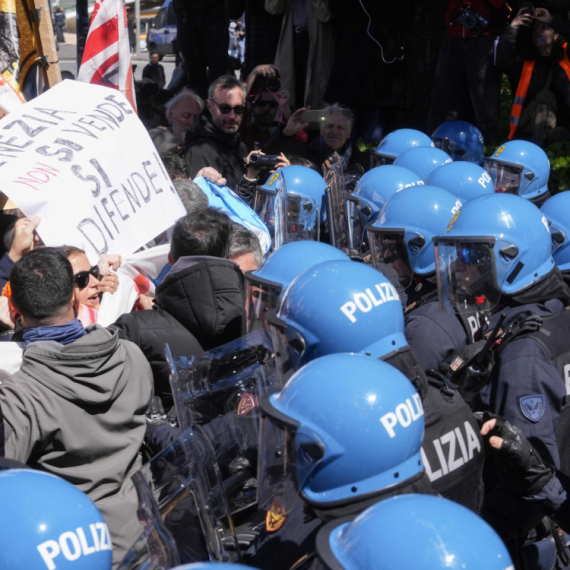
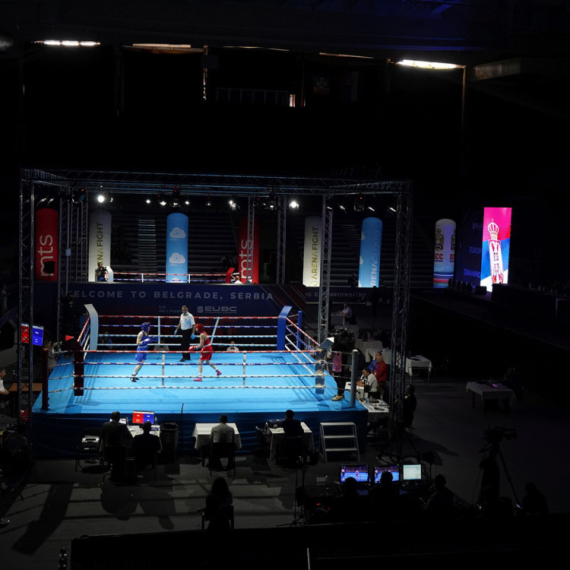
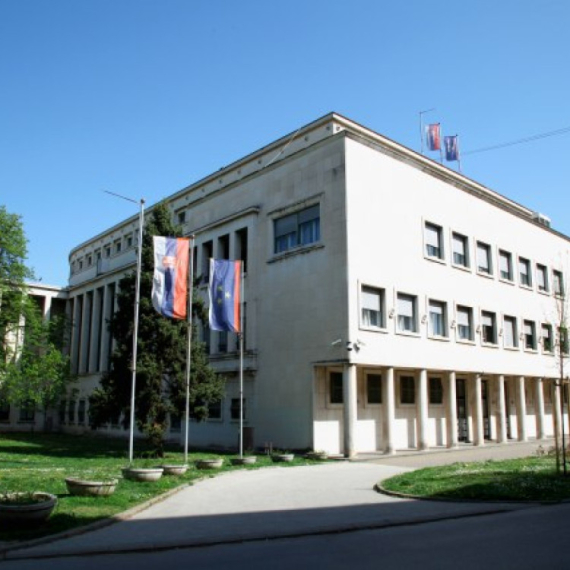







































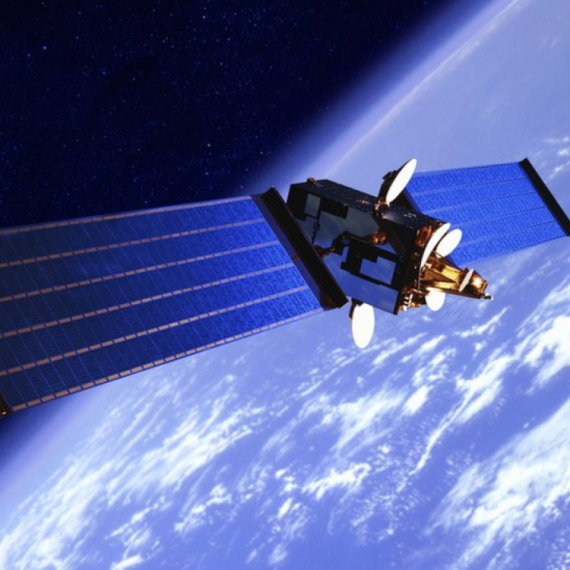
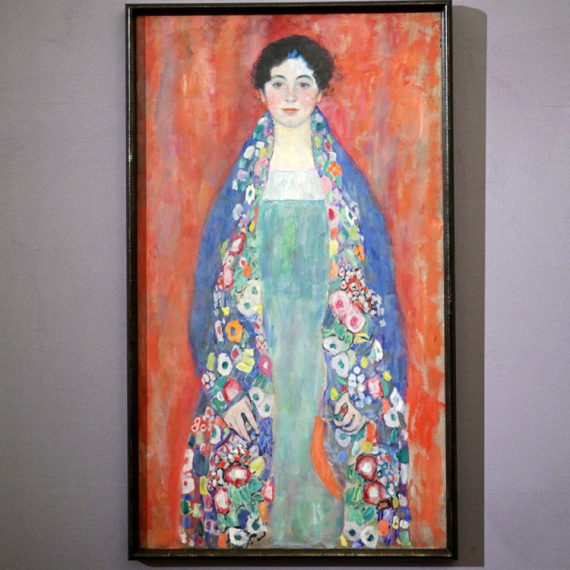

Komentari 20
Pogledaj komentare